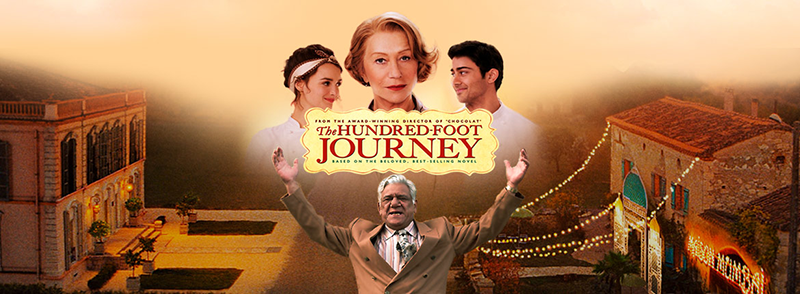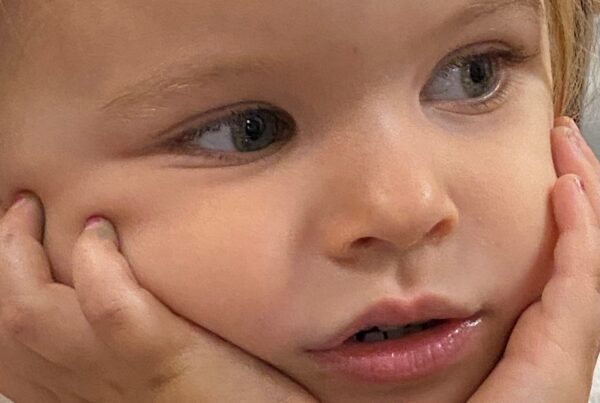
Guest essay by Carla Gardini, Executive Vice President of Harpo Films. (Reprinted by permission from AgeWatch, publication of the California Commission on Aging)
A work in progress, which like most everything in Hollywood, is probably the best way to respond to the ongoing concern of how authentically or stereotypically filmmakers portray older adults.
In recent years, audiences have experienced complex and diverse older adult characters in films such as “The Intern,” “Philomena,” “The Best Exotic Marigold Hotel,” and “Danny Collins.” But despite their ageless themes of purpose, family, love, and ambition, these “mature” films are few and far between.
Movies depicting older characters, portrayed by older actors, and intended for adult audiences are increasingly difficult to get made. Studios are making fewer movies, in general. Their business model has shifted. While the domestic box office is still an important measure of a film’s success, the international box office, particularly China, is perhaps the strongest determinant of which movies get the green light and how large their production and marketing budgets will be. The reality is, comic book and action movies, which prioritize spectacle over story, transcend language and therefore “travel” better overseas.
The good news is we’re living in the Golden Age of Television. The proliferation of distribution channels, especially subscription-based platforms like Netflix and Amazon that don’t rely on ad dollars, has given rise to programming that is more nuanced and inclusive. In a medium that is no longer hostage to the broadest possible audience, it’s no surprise that storytellers have turned to the small screen to push creative boundaries and take chances on challenging subject matter.
Consequently, shows with seemingly limited audiences, like “Atlanta,” “Master of None,” and “Queen Sugar” have been well-received with critics and audiences alike. And the success of these shows is not in spite of their cultural or ethnic diversity, but because of it.
Relatability is paramount when it comes to storytelling. For far too long, Hollywood has narrowly defined “relatable” as whatever looks and sounds like the majority of Americans (i.e. whites from the middle of the country). In reality, when it comes to relatability, what matters most is theme. Hollywood can always do better, but television has made considerable progress in tackling issues and disparities of race, gender, and sexual-orientation. And considering the old Hollywood adage, “Every story is a coming-of-age story,” diversity of age should be an obvious goal, too.
Recently, we’ve seen progress in breaking down stereotypes and expanding arbitrary boundaries with shows like Netflix’s “Grace and Frankie” and Amazon’s “Transparent.” You may not be a widowed woman in her 70s, but surely you’ve known the pain of lost love and the profound healing ability of friendship. You may not be a 70-year-old transgender woman, but surely you can relate to feeling uncomfortable in your own skin and wanting a fresh start in life. Growing old is anything but typical; it should be portrayed with the same sort of complexity that makes younger characters interesting.
Even NBC, the network that brought us “Golden Girls” more than 30 years ago, is getting back in the aging game. The broadcaster recently announced a pilot commitment to “Guess Who Died,” a half-hour comedy set in a retirement village, produced by 95-year-old TV pioneer, Norman Lear. The prolific creator of shows like “All in the Family,” “Sanford and Son,” and “Good Times” said he wrote the show “because we are so underrepresented.”
I believe the best storylines featuring older characters approach aging naturally and do not make it necessarily central to the plot. In industry parlance, “show, don’t tell” is a more impactful way to portray older adults as multi-dimensional, with pursuits and passions and purpose just as younger generations. Nobody likes the idea of growing old, but knowledge, experience and wisdom are traits we can all rally behind.
For example, Harpo Films produced for HBO “The Immortal Life of Henrietta Lacks,” in which Oprah Winfrey starred. Her character was complicated, relatable and inspiring. And very real, so much so that Oprah explained in Parade magazine she felt humbled by the role and was obliged to face her own maturity. “I don’t like the word ‘old,’ because the language you give yourself often starts to define the way you see or think of yourself,” she observed. “I use the words ‘growing with age’ or ‘evolving.’”
Let’s not forget that some of the biggest stars in the world are chronologically “seniors.” But you’ll never attract Meryl Streep or Denzel Washington or the seemingly ageless Helen Mirren, who I worked with on “The Hundred-Foot Journey,” to play characters defined solely by their age.
The entertainment industry has informed our culture for the better by realistically addressing racism and sexism, among other injustices. When Sidney Poitier received his honorary Academy Award in 2002, he credited the writers and directors whose determination and artistry created great stories and roles. “They knew the odds that stood against them. Still those filmmakers persevered, speaking through their art to the best of all of us.”
I am hopeful past and current successes will encourage more risks and produce more rewards for storytellers who boldly take on ageism. It makes both social and economic sense for Hollywood to acknowledge our population is growing older faster than any time in history.
So, my take on Hollywood and aging is this: As television continues to break ground and pave the way for content that authentically depicts older adults, film will hopefully follow its lead. Ultimately, everyone will benefit from the coincidence of creators making good and doing good.







Powerful. I enjoyed reading your blog. I look forward to “Guess Who Died”.